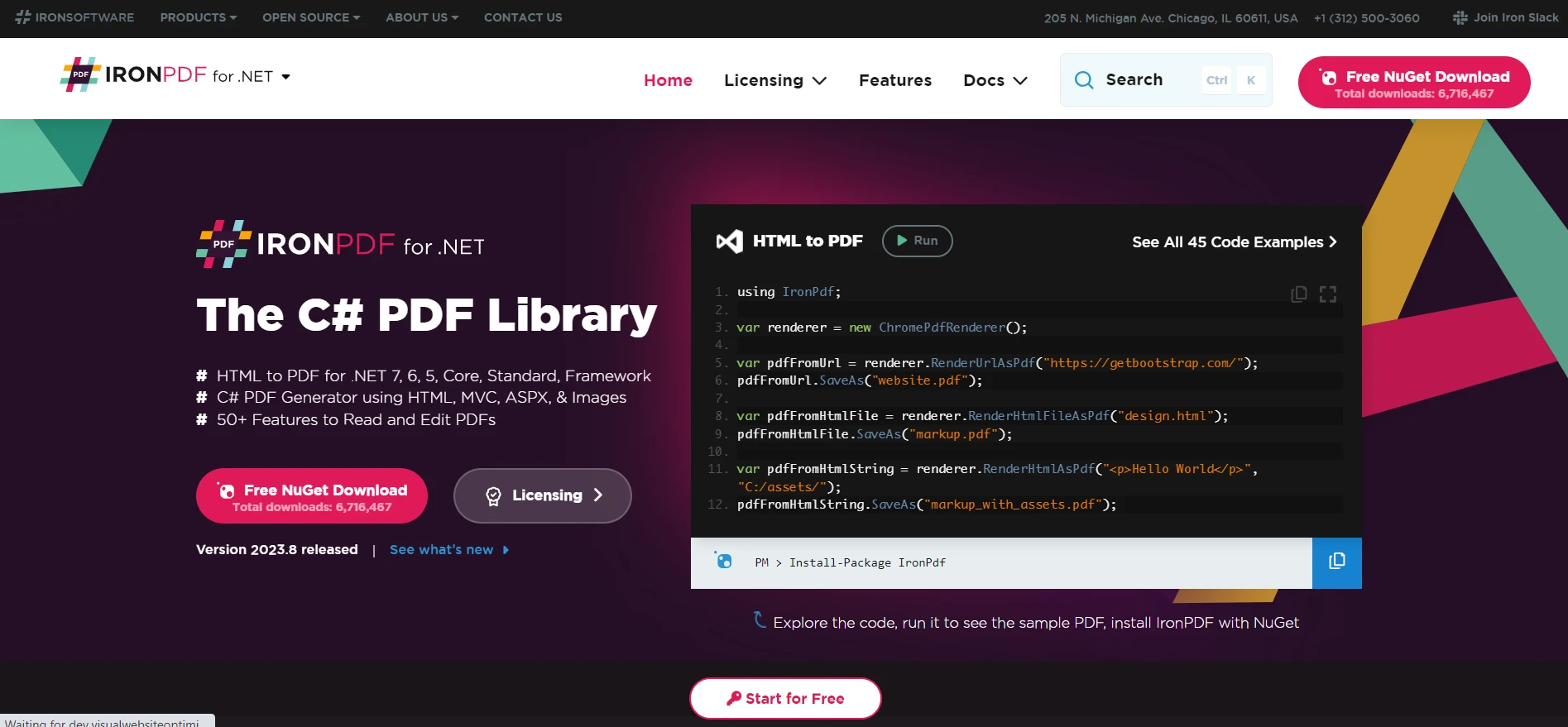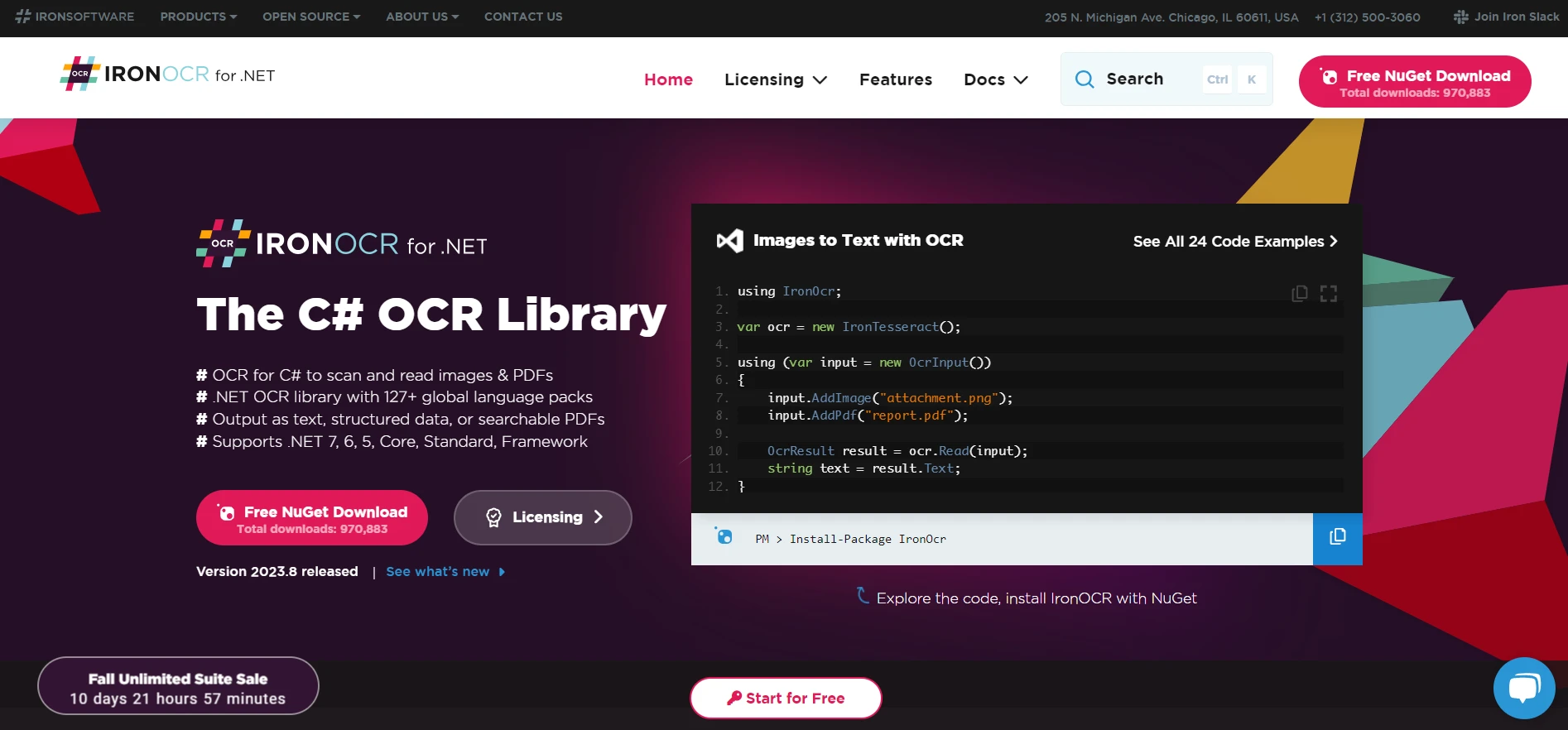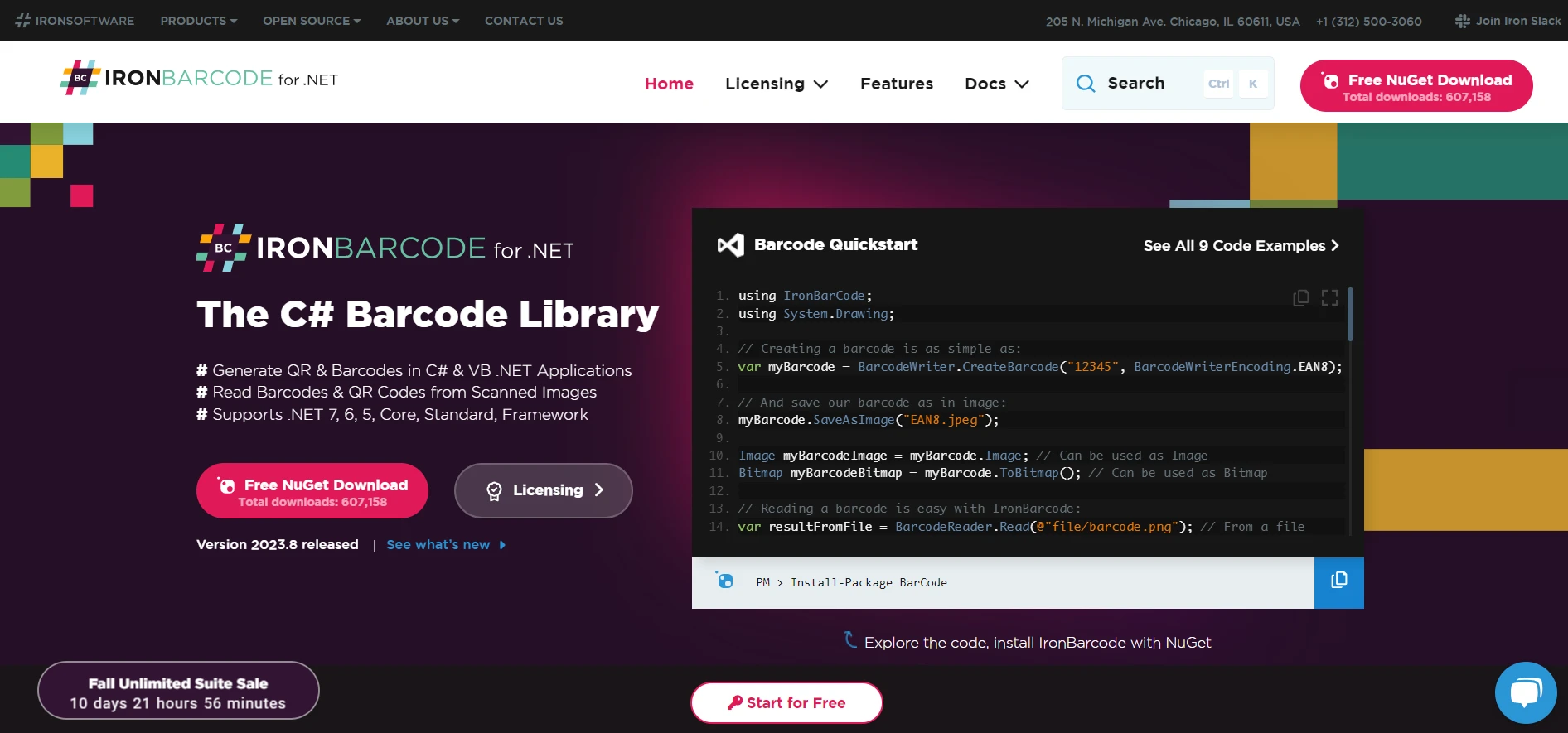Test in a live environment
Test in production without watermarks.
Works wherever you need it to.
Rounding numbers is a fundamental mathematical concept, often applied in real-world scenarios. In C#, the Math.Round method facilitates this by allowing you to round values to the nearest integral value or to a specific number of decimal places. This tutorial delves into the nuances of rounding in C# and illustrates how you can harness this powerful method.
Rounding a number implies adjusting it to the nearest integral or decimal value to make it simpler or to conform to a particular requirement. For example, when you have the decimal number 3.14159, rounding it to two decimal places would yield 3.14.
Simplicity: Rounded numbers are often easier to read and comprehend.Precision: In some cases, operating on rounded values rather than exact ones is more efficient, especially in contexts like currency calculations.Nearest Integer: Round a decimal value to its closest whole number.Specified Number of Decimals: Round a number to a specific number of decimal places, like rounding 15.678 to two decimal places would be 15.68.C# offers a robust system for rounding through the Math.Round method. This method can accept various arguments and parameters to customize the rounding operation.
The simplest form of Math.Round method rounds a double value to the nearest integral value. If the given number is equidistant from two integers, it rounds to the nearest even number, often called "banker's rounding."
double originalValue = 4.5;
double roundedValue = Math.Round(originalValue);
Console.WriteLine($"Original: {originalValue}, Rounded: {roundedValue}");double originalValue = 4.5;
double roundedValue = Math.Round(originalValue);
Console.WriteLine($"Original: {originalValue}, Rounded: {roundedValue}");Dim originalValue As Double = 4.5
Dim roundedValue As Double = Math.Round(originalValue)
Console.WriteLine($"Original: {originalValue}, Rounded: {roundedValue}")In the above example, *4.5 is equidistant from 4 and 5. Since 4 is the nearest even number, the method returns 4.
You can also round a double-precision floating-point to a specified number of decimal places using an additional argument:
double value = 7.34567;
double rounded = Math.Round(value, 2); // Rounds to two decimal places
Console.WriteLine($"Original: {value}, Rounded: {rounded}");double value = 7.34567;
double rounded = Math.Round(value, 2); // Rounds to two decimal places
Console.WriteLine($"Original: {value}, Rounded: {rounded}");Dim value As Double = 7.34567
Dim rounded As Double = Math.Round(value, 2) ' Rounds to two decimal places
Console.WriteLine($"Original: {value}, Rounded: {rounded}")The method rounds the original value 7.34567 to 7.35 since we've specified it to round to two decimal places.
When dealing with midpoint values (those equidistant from two potentially rounded values), C# offers a MidpointRounding mode to determine how these values are rounded.
By default, Math.Round rounds midpoint values to the nearest even number.
double valueOne = 4.5; // Rounded to 4
double valueTwo = 5.5; // Rounded to 6double valueOne = 4.5; // Rounded to 4
double valueTwo = 5.5; // Rounded to 6Dim valueOne As Double = 4.5 ' Rounded to 4
Dim valueTwo As Double = 5.5 ' Rounded to 6MidpointRounding ModeTo provide more control over the rounding operation for midpoint values, you can pass in a specific MidpointRounding mode as a parameter:
double value = 5.5;
double rounded = Math.Round(value, 0, MidpointRounding.AwayFromZero);
Console.WriteLine($"Original: {value}, Rounded: {rounded}");double value = 5.5;
double rounded = Math.Round(value, 0, MidpointRounding.AwayFromZero);
Console.WriteLine($"Original: {value}, Rounded: {rounded}");Dim value As Double = 5.5
Dim rounded As Double = Math.Round(value, 0, MidpointRounding.AwayFromZero)
Console.WriteLine($"Original: {value}, Rounded: {rounded}")In this example, the MidpointRounding.AwayFromZero mode makes sure the number is rounded to 6.
While we've discussed rounding double values, C# also supports rounding decimal values. The methods are analogous, but they work with the decimal data type. Here's an example
decimal decimalValue = 5.678m;
decimal roundedDecimal = Math.Round(decimalValue, 1); // Rounds to one decimal place
Console.WriteLine($"Original: {decimalValue}, Rounded: {roundedDecimal}");decimal decimalValue = 5.678m;
decimal roundedDecimal = Math.Round(decimalValue, 1); // Rounds to one decimal place
Console.WriteLine($"Original: {decimalValue}, Rounded: {roundedDecimal}");Dim decimalValue As Decimal = 5.678D
Dim roundedDecimal As Decimal = Math.Round(decimalValue, 1) ' Rounds to one decimal place
Console.WriteLine($"Original: {decimalValue}, Rounded: {roundedDecimal}")The decimal number 5.678 rounds to 5.7 when rounded to one decimal place.
Sometimes, you may need to perform specific rounding operations not covered by the standard Math.Round method. Writing custom rounding functions gives you complete control over the process.
To always round up to the nearest integer, you can use Math.Ceiling method:
double value = 4.3;
double roundedUp = Math.Ceiling(value);
Console.WriteLine($"Original: {value}, Rounded Up: {roundedUp}");double value = 4.3;
double roundedUp = Math.Ceiling(value);
Console.WriteLine($"Original: {value}, Rounded Up: {roundedUp}");Dim value As Double = 4.3
Dim roundedUp As Double = Math.Ceiling(value)
Console.WriteLine($"Original: {value}, Rounded Up: {roundedUp}")The decimal number 4.3 rounds up to 5.
Conversely, rounding down to the nearest integral value is done using Math.Floor method:
double value = 4.7;
double roundedDown = Math.Floor(value);
Console.WriteLine($"Original: {value}, Rounded Down: {roundedDown}");double value = 4.7;
double roundedDown = Math.Floor(value);
Console.WriteLine($"Original: {value}, Rounded Down: {roundedDown}");Dim value As Double = 4.7
Dim roundedDown As Double = Math.Floor(value)
Console.WriteLine($"Original: {value}, Rounded Down: {roundedDown}")The decimal number 4.7 rounds down to 4.
In many applications, you might deal with numerical values as strings. Parsing the string to a double or decimal, rounding it, and then converting it back can be done using C#.
Here's an example of how to round a string containing a decimal number:
string originalString = "4.5678";
double parsedValue = double.Parse(originalString);
double rounded = Math.Round(parsedValue, 2); // Rounds to two decimal places
string roundedString = rounded.ToString();
Console.WriteLine($"Original: {originalString}, Rounded: {roundedString}");string originalString = "4.5678";
double parsedValue = double.Parse(originalString);
double rounded = Math.Round(parsedValue, 2); // Rounds to two decimal places
string roundedString = rounded.ToString();
Console.WriteLine($"Original: {originalString}, Rounded: {roundedString}");Dim originalString As String = "4.5678"
Dim parsedValue As Double = Double.Parse(originalString)
Dim rounded As Double = Math.Round(parsedValue, 2) ' Rounds to two decimal places
Dim roundedString As String = rounded.ToString()
Console.WriteLine($"Original: {originalString}, Rounded: {roundedString}")Original: 4.5678, Rounded: 4.57
When working with financial applications, precision is vital. Rounding errors can lead to significant problems. In such cases, the decimal type is preferred due to its higher precision compared to double.
The following example demonstrates the rounding of a decimal value representing currency:
decimal originalValue = 1234.5678m;
decimal roundedValue = Math.Round(originalValue, 2, MidpointRounding.AwayFromZero);
Console.WriteLine($"Original: {originalValue:C}, Rounded: {roundedValue:C}");decimal originalValue = 1234.5678m;
decimal roundedValue = Math.Round(originalValue, 2, MidpointRounding.AwayFromZero);
Console.WriteLine($"Original: {originalValue:C}, Rounded: {roundedValue:C}");Dim originalValue As Decimal = 1234.5678D
Dim roundedValue As Decimal = Math.Round(originalValue, 2, MidpointRounding.AwayFromZero)
Console.WriteLine($"Original: {originalValue:C}, Rounded: {roundedValue:C}")The above code rounds the value to two decimal places, keeping in line with most currency standards.
Occasionally, rounding operations might not yield the expected results. These discrepancies could be due to issues like floating-point precision with double values.
Double Precision: The double type might not always represent decimal numbers exactly, leading to unexpected rounding results. Using the decimal type can mitigate this.Incorrect MidpointRounding Mode: Ensure you use the correct MidpointRounding mode for your specific requirements. Misusing these modes can lead to rounding errors.Utilize tools like logging and breakpoints to trace the value before and after rounding. Inspecting the original value and the parameters passed to the rounding method can usually reveal inconsistencies.
After mastering the basics of rounding in C#, you might wonder how to take your applications to the next level, especially when dealing with complex data formats. The Iron Suite can be your savior here. This suite comprises powerful tools like IronPDF, IronXL, IronOCR, and IronBarcode. Let’s delve deeper into how these tools can integrate with your rounding operations and further enrich your applications.

IronPDF is a robust library in C# designed for PDF generation from HTML, editing, and management. Imagine a scenario where you need to generate a report in PDF format after performing rounding operations. IronPDF can effortlessly convert your C# code into high-quality PDFs.

IronXL provides functionalities for working with Excel files, enabling C# developers to read, write, and manipulate Excel spreadsheets seamlessly. With IronXL, you can retrieve decimal or double data from Excel sheets, perform rounding operations in C#.

IronOCR is an advanced Optical Character Recognition (OCR) library for C# that can recognize and extract text from images and PDFs. Suppose you have scanned documents or images containing numerical data. With IronOCR, you can extract this data, process or round it in C#.

IronBarcode is a powerful tool for generating, reading, and classifying barcodes and QR codes in .NET. In contexts where rounded data needs to be encoded into barcodes (for example, product pricing in a retail application), IronBarcode can be invaluable.
Rounding in C# is a multifaceted topic with applications in various domains. Understanding the built-in methods like Math.Round, Math.Floor, and Math.Ceiling, and knowing when to use the appropriate data type (double or decimal) will empower you to handle numerical data efficiently.
Using rounding in C# helps make numbers easier to work with. But what if you want to do even more with those numbers? That's where the Iron Suite comes in. It's a set of tools that can help you work with PDFs, Excel files, text in images, and barcodes.
Here's the exciting part: You can try these tools for free with a trial license to see if you like them. If you decide to buy one, each one costs $749. But if you want to buy all of them, you can get the whole set for just two tools. It's like getting four tools but only paying for two! Check out the Iron Suite's license page for more information.
9 .NET API products for your office documents








